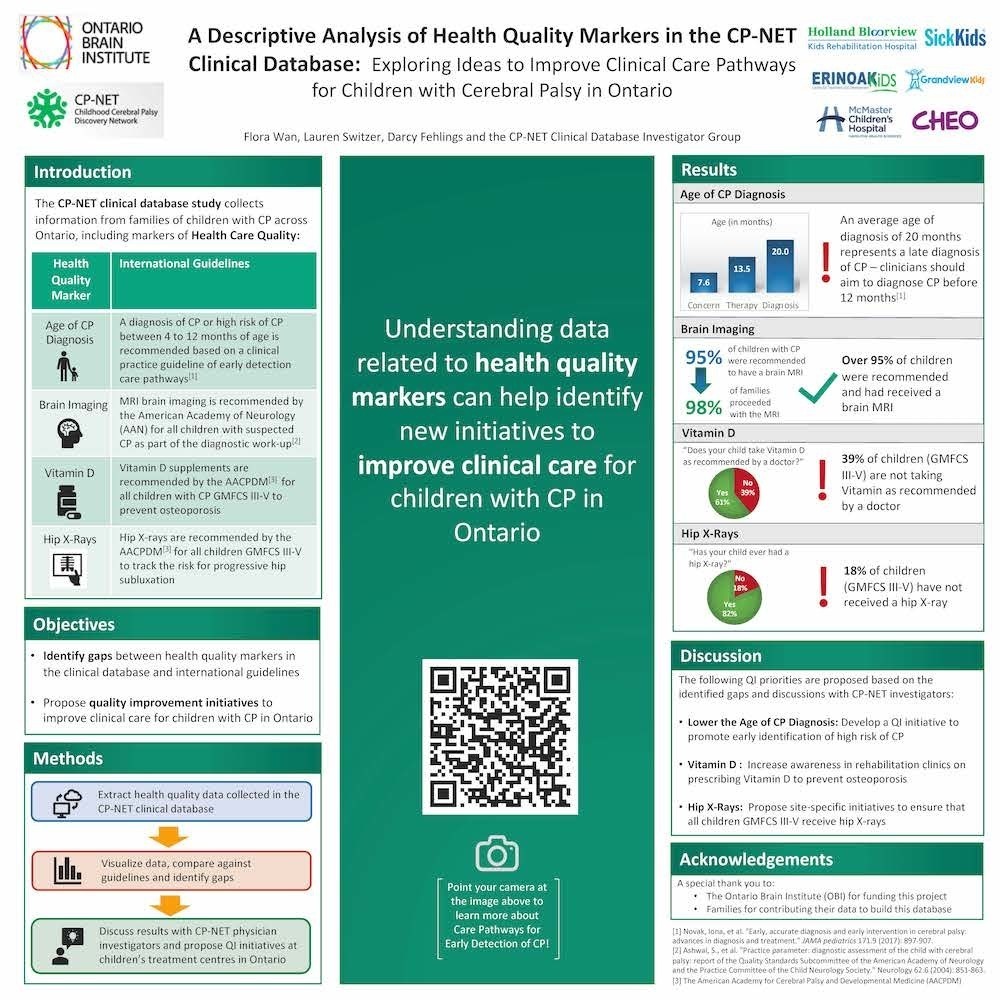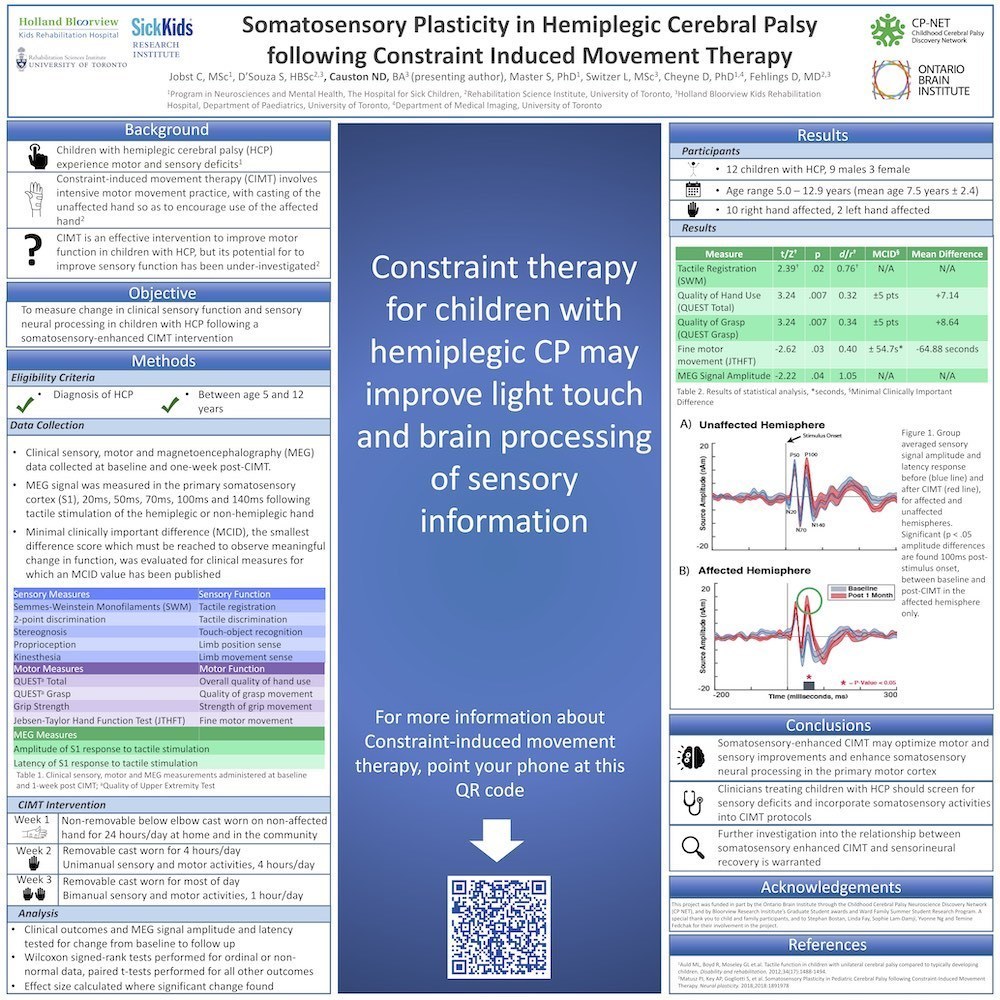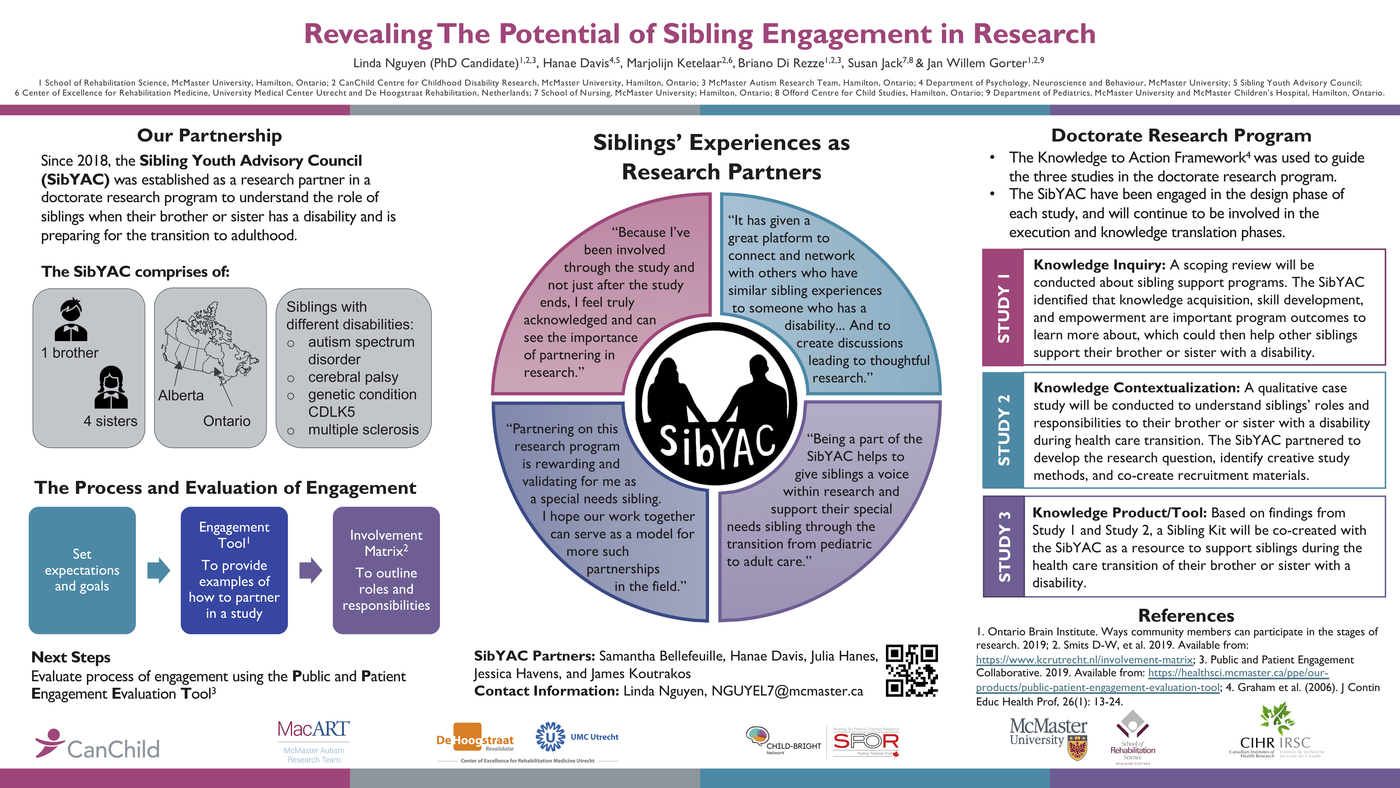7th CP-NET Science and Family Day Poster Presentations
A descriptive analysis of health quality markers in the CP-NET Clinical Database: Exploring ideas to improve clinical care pathways for children with cerebral palsy in Ontario
Abstract: The CP-NET clinical database project is designed to collect information from health care institutions across Ontario which will help researchers study the causes of CP, improve diagnosis and develop treatments and interventions. One aspect of the data that is collected relate to markers of health care quality, such as the age of CP diagnosis, the recommendation on use of Vitamin D supplements to promote bone health, and the extent of hip X-rays amongst children with moderate to severe levels of CP. By exploring how the health quality data collected in the clinical database compare with international guidelines, new clinical quality improvement initiatives can be proposed to enhance clinical care for children with CP in Ontario.
Presenter: Flora Wan
Somatosensory Plasticity in Hemiplegic Cerebral Palsy following Constraint-induced Movement Therapy
Abstract: Children with hemiplegic cerebral palsy (HCP) experience deficits in upper-limb sensory function and motor function. Constraint-induced movement therapy (CIMT) is effective in improving motor function in individuals with HCP, but its impact on sensory function is under-investigated. We aimed to determine whether the addition of sensory activities to CIMT would result in changes in sensory function and related sensory brain activity in children with HCP, measured using clinical sensory and motor assessments and magnetoencephalography (MEG). Children with HCP aged 5-12 attended a three week CIMT camp with sensory and motor activities. After the camp, children showed improvements in some aspects of their sensory function and also had improvements in the use of their hand. We also identified a stronger sensory signal in the brain after CIMT.
Presenter: Natasha Causton
Revealing the Potential of Sibling Engagement in Research
Authors: Linda Nguyen*, Hanae Davis*, Marjolijn Ketelaar, Briano Di Rezze, Susan Jack, Jan Willem Gorter, in partnership with the Sibling Youth Advisory Council
*Co-presenters
Background/Objectives:
1. To describe the development of a meaningful partnership with the Sibling Youth Advisory Council (SibYAC)
2. To highlight how the SibYAC have contributed to a doctoral research program
Description: In the field of childhood disability research, there is an increasing recognition that collaborative and meaningful partnerships with people with lived experience and their family members ensures that the research findings are relevant and applicable to family-centred care. The Sibling Youth Advisory Council (SibYAC) with siblings as stakeholders was established as a partner in some new research projects as part of a doctoral research program, which aims to understand the role of siblings when their brother or sister has a disability and is in the process of transition from pediatric to adult health care. The SibYAC is comprised of five sibling stakeholders who are young adults with a representation of gender (4 sisters, 1 brother) and different disability diagnoses of their sibling (autism spectrum disorder, cerebral palsy, genetic condition, and multiple sclerosis). An integrated knowledge translation approach was used to engage with SibYAC members in the design phase of each study in the doctoral research program. They will continue to be involved in the execution and knowledge translation phases, although their participation and roles may change over time.
There is a need to raise awareness about the role of siblings in the lives of their brother or sister with a disability, but to also recognize the potential of the sibling voice in research. Key messages about siblings’ roles in different contexts are important to share with a broad diverse audience who wish to engage with siblings in research, practice, and policy.
Transition to Adult Healthcare: Creating a National Agenda
In 2019, Children’s Healthcare Canada (CHC) created “Child Health Hubs”. The purpose of these hubs is to “connect individuals from member-organizations with ‘like’ peers from coast to coast to share information, ask questions, and exchange resources related to their position or role in their organization”. Under the leadership of Dr. Jan Willem Gorter, a Child Health Hub in Transition to Adult Healthcare was formed. Come chat with us on how you can get involved!
Presenter: Dayle McCauley
Exhibitions
Click the logo to view the exhibition poster for each organization







